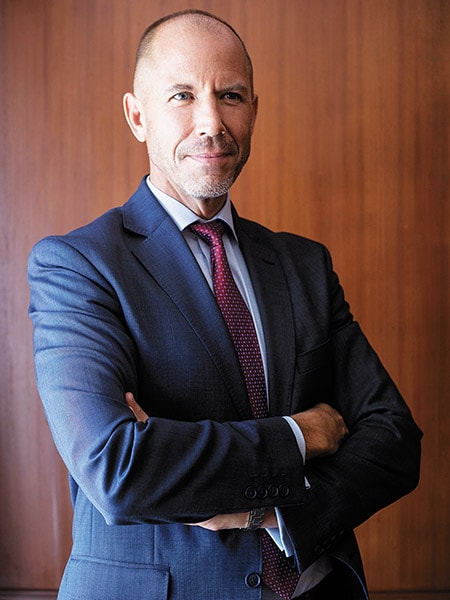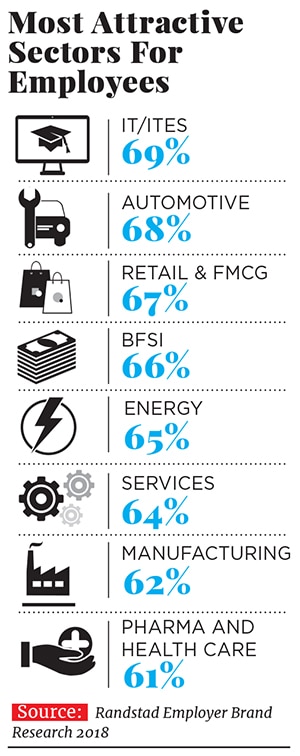There's no such thing as work-life balance: Randstad India CEO
What employees are looking for is the freedom to turn off when they want to, says Paul Dupuis



Paul Dupuis, CEO, Randstad India
Image: Aditi TailangOn the sidelines of the release of the Randstad Employer Brand Research 2018 survey, Forbes India caught up with Paul Dupuis, CEO, Randstad India, to understand what keeps Indian employees ticking. Edited excerpts:
Q. What were the key findings of the survey?
Salary and employee benefits (48 percent) was the number one reason why people join companies in India—this is constant across all demographics. Coming in a close second was work-life balance (44 percent) followed by job security (42 percent). With job security ranking so high, it tells us about the state that India is in–evolving and still under construction. Let’s say a ship that has been shaking for many years is starting to steady a bit. Career progression (39 percent) and strong management (39 percent) come next. One thing I’ve discovered in India is the need for people to have a leader they can admire, trust and follow. I’ve seen that more here than in other countries.  Q. Work-life balance seems to be a bit of a misnomer in today’s hyper-connected, digital world where one is always ‘on’.
Q. Work-life balance seems to be a bit of a misnomer in today’s hyper-connected, digital world where one is always ‘on’.
There’s no such thing as work-life balance. There’s no such thing as turning off if you like what you do plus in our digital world, it’s hard to turn off. Yet people recognise work-life balance as a key priority when they join companies. Behind that is the word ‘freedom’. It’s about having the freedom to turn off when you want to, or the freedom to work four hours on one day and then go off to do some volunteering or yoga, but then come in the next day, work nine hours and move the needle. Freedom to do that is work-life balance.
Q. What about having a voice or being empowered? How important is that for employees, especially millennials?
Not just in India, but everywhere, millennials want to be heard. For the youth today, the connect is all digital and often virtual. What I’ve discovered is that they are longing for that touch piece—having their voice heard, having face-to-face time with their bosses and colleagues. There’s the assumption that millennials don’t want that that they want virtual and everything done through social media. That’s not true. They want the camaraderie and the in-person touch more than we expected.
Companies need to understand people in their 20s because they will be 65 percent of the workforce by 2030. The issue is the gap between them and the senior leaders at companies who are in their 50s. For them millennials are aliens. There is some awareness building and reskilling that has to happen in the senior leadership. I see it here and there, but traditional Indian companies have a hard time keeping up with this.
First Published: May 16, 2018, 14:26
Subscribe Now